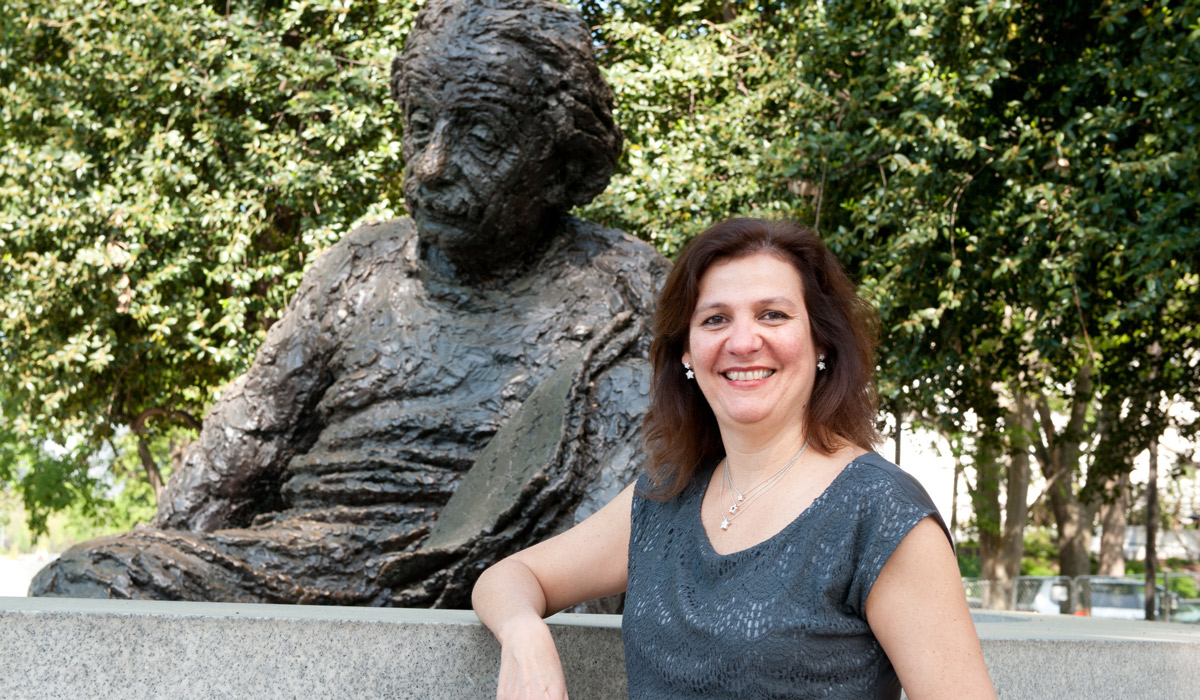

“Think of this desk as our galaxy,” says Duilia de Mello, spreading her arms wide and surveying the surface in front of her. “We are here,” she says, tapping a stack of papers in front of her, “and we are looking out at stars in our galaxy over here,” she says, sweeping her arm to the left.
De Mello, a physics professor and vice provost at Catholic University, is known for using visuals when talking about astronomy. She’s gotten used to explaining her highly technical work on extragalactic astronomy to audiences that often have little to no background in the subject.
“It all started with the supernova,” de Mello laughed. In January 1997, de Mello, a post doctoral researcher at the time, accidently discovered a supernova while doing a routine observation of the sky at the European Southern Observatory in northern Chile “where the mountains are high and the sky is dark and clear.” She had a paper chart with seven stars on it but noticed through her telescope that there was an extra dot in the sky.
“I kept counting and counting so I went to take a deep exposure image. My boyfriend at the time, now my husband, came by to drop off a sandwich. I said, ‘maybe you should wait . . . I think I just discovered a supernova.’”
When de Mello reported the discovery back to her supervisors in Brazil they put out a press release immediately. That press release started de Mello’s now 20-year-long career as an astronomy consultant to the press and now other groups of non-professionals.
“Because of the supernova I spent a lot of time trying to explain very complex things in simple terms. It’s not easy and many scientists don’t do a good job of explaining, they become trapped in the jargon,” she said.
De Mello’s gift for clear explanation has helped turn her astronomy for non-majors course into one of the most popular science courses at Catholic University. Her class has well over 100 students each fall as she walks them through space, assigning hands-on tasks like observing the position of the moon in the night sky. Her gift for talking to students about the universe has earned her an invitation to turn the attention of the public upward once again, this time at the sun. De Mello, who is the coordinator of the International Network of Catholic Astronomy Institutions (INCAI), was invited by Benedictine College in Kansas to speak during a two-day-long festival celebrating the first total solar eclipse to cross the entire continental United States in 99 years.
De Mello and her husband will fly their single engine airplane into an airport in Kansas to give her talk. She will address the audience from the airport hanger itself, “for a little drama,” she laughed. The crowd will consist of a few professional astronomers, but mostly just people interested in catching a glimpse of the eclipse.
“I enjoy speaking with the general public more than my peers because what I like about being a scientist is passing knowledge along,” said de Mello. “Otherwise it’s a waste, it’s all in here,” she said, pointing at her head.